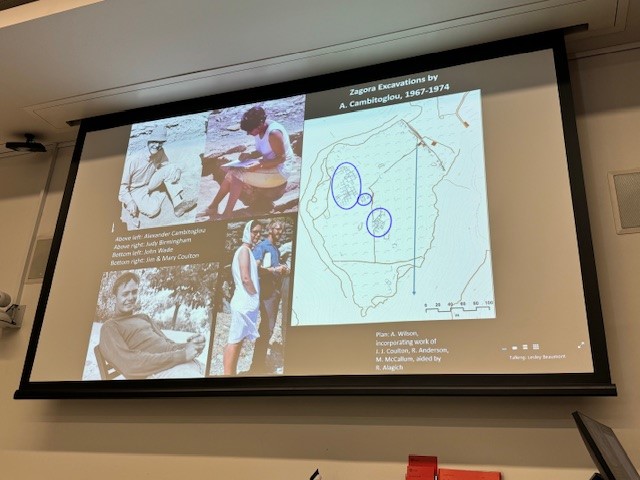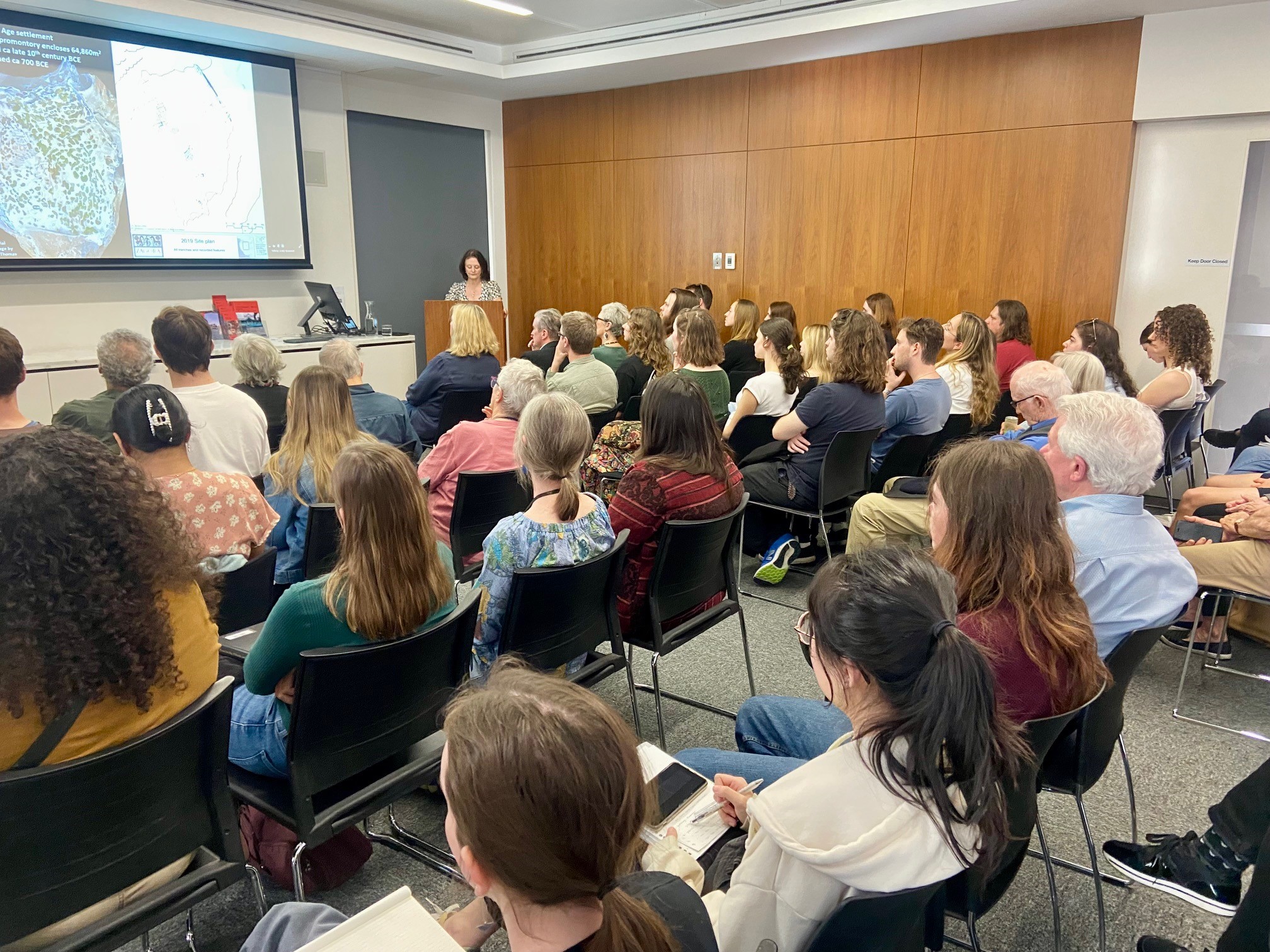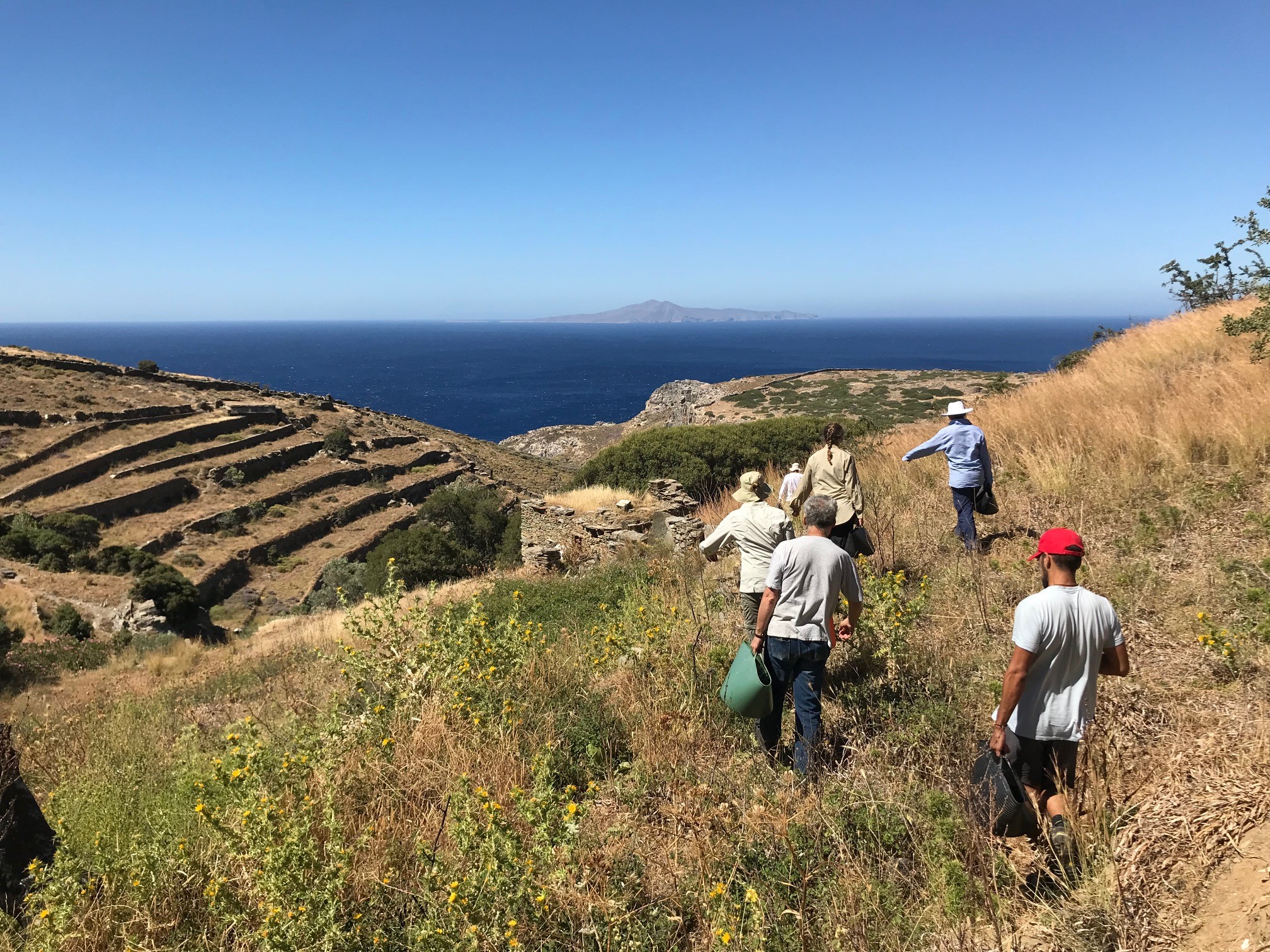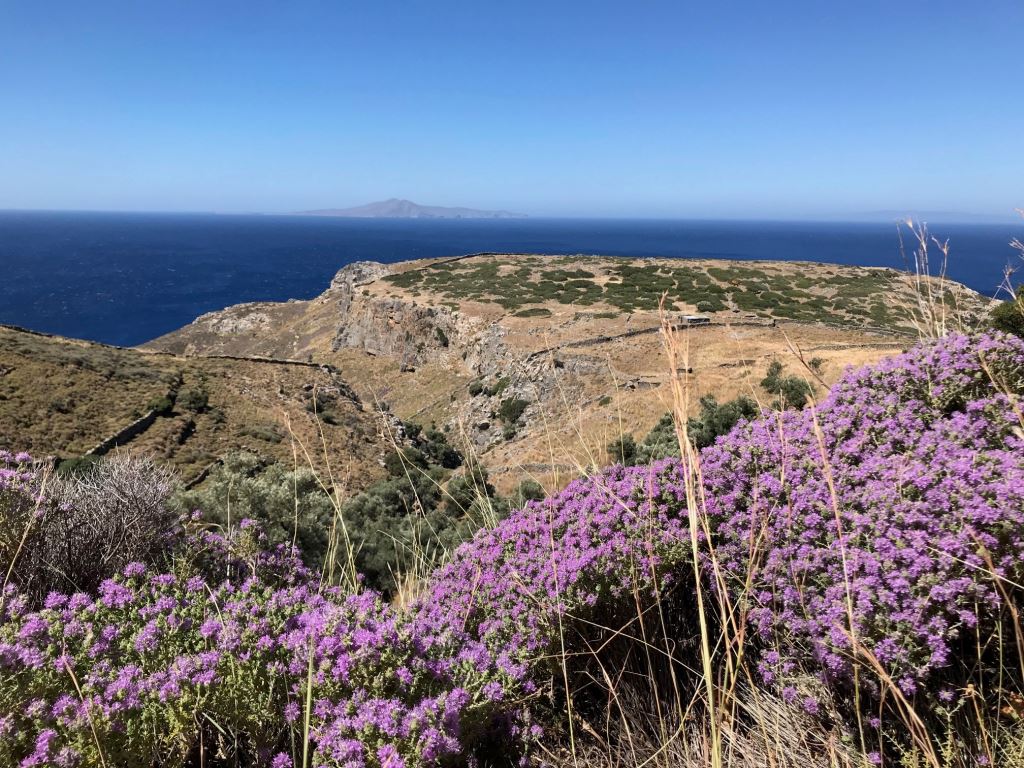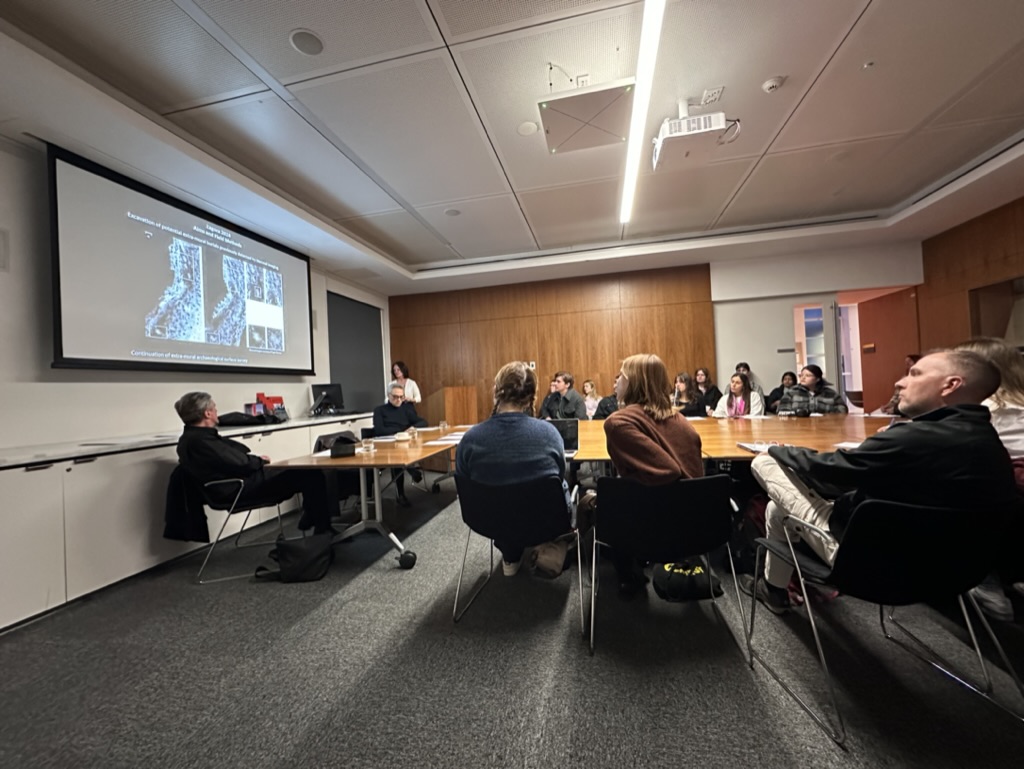A capacity crowd of 70 students, staff and researchers packed into the University of Sydney’s Vere Gordon Childe Centre boardroom on Tuesday 27 August for the weekly Archaeology Seminar Series. For many it was an opportunity to catch up on one of the University’s and Australian Archaeological Institute at Athens’ iconic excavations. For the students especially, it was a chance to have their appetites whetted ahead of their imminent departure for Greece, in an illustrated lecture by Zagora Archaeological Project co-director, Associate Professor Lesley Beaumont.
The presentation, ‘The Zagora Project: Past and Future’, placed the upcoming 2024 field season’s plans in the context of the foundational work undertaken by the University of Sydney in the 1960s and 1970s, led by the late Professor Alexander Cambitoglou. A few original Zagora participants in the audience recognised young versions of themselves and their past captured in the distinct shades of mid-century photography – contrasting images of their heads tilted valiantly against the wind while excavating or relaxing after an exhausting day.
Speaking on behalf of her fellow co-directors Paul Donnelly and Stavros Paspalas, Lesley described the numerous technologies supplementing the 2024 excavations, from drone photogrammetry to groundwater tracing and deep soil coring. Accompanying the presentation were the always-spectacular images of the site. It is easy to get great images of, and around, Zagora. Zagora’s challenging remoteness is also its great strength – the reason for its unique survival as the only complete Iron Age settlement in the region, located on a vertical promontory above a sparkling Aegean Sea.
